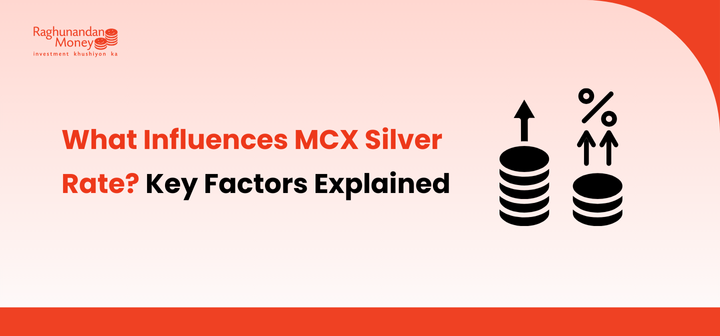Bond yields may sound complex, but understanding them is crucial for every Indian investor—whether you're investing in government securities (G-Secs), corporate bonds, or debt mutual funds. In this guide, we’ll break down bond yields into simple terms, explain how they affect your investment returns, and why they're a key part of India's fixed-income market.
What Are Bonds?
A bond is essentially a loan you give to an entity (government, company, etc.) in exchange for regular interest payments and the return of your principal at maturity. Bonds are fixed-income instruments, meaning they pay a predictable stream of income—unlike equities, which may or may not pay dividends.
What Is a Bond Yield?
Bond yield is the return an investor earns on a bond. While the coupon rate (fixed interest rate) tells you how much income you'll receive, the yield tells you how much return you’re making on your investment based on the current market price of the bond.
Yield ≠ Coupon
The coupon is fixed. The yield changes as the bond’s market price changes.
Step-by-Step: How Bond Yield Works?
Step 1: Understand the Coupon Rate
This is the fixed annual interest paid on a bond.
Example: A bond with ₹1,000 face value and 7% coupon rate pays ₹70/year.
Step 2: Know the Market Price of the Bond
Bonds are traded in the secondary market, and their prices fluctuate with demand, interest rate changes, and credit risk.
- If interest rates rise → bond prices fall
- If interest rates fall → bond prices rise
Step 3: Calculate the Current Yield
Current Yield = Annual Coupon Payment/ Current Market Price of the Bond ×100
Example:
Bond face value = ₹1,000
Coupon = ₹70
Current market price = ₹950
Current Yield= (70/950) ×100=7.37%
This means even though the bond pays 7%, you’re earning 7.37% because you bought it at a discount.
Types of Bond Yields
|
Type of Yield |
What It Means |
|
Current Yield |
Annual return based on coupon and current price. |
|
Yield to Maturity (YTM) |
Total return if the bond is held till maturity—includes interest and price gain/loss. |
|
Yield to Call (YTC) |
Return if the bond is redeemed before maturity (applicable for callable bonds). |
Importance of Bond Yield
- Interest Rate Signals
Bond yields reflect expectations around RBI’s interest rate moves. If yields rise, markets expect interest rates to go up.
- Debt Fund Returns
If you invest in debt mutual funds, their NAVs are sensitive to bond yield changes. When yields go up, bond prices fall, and so do NAVs.
- Government Borrowing Costs
The yield on 10-year G-Secs is a key benchmark. Higher yields mean the government pays more to borrow money.
- Investment Strategy
Rising yields may be a good time to lock in higher returns. Falling yields could mean it's time to go short-term or stay liquid.
What Affects Bond Yields in India?
- Repo Rate – RBI’s benchmark lending rate
- Inflation – Higher inflation = higher yields
- Liquidity in Banking System – More liquidity = lower yields
- Fiscal Deficit & Borrowing – High govt borrowing = higher yields
- Global Cues – US Fed rate decisions, crude oil prices, etc.
How Indian Investors Can Use Bond Yields
- Debt Fund Investors – Use YTM to compare funds before investing
- Gilt Investors – Monitor 10-year G-Sec yield for timing
- Corporate Bond Buyers – Check credit spreads over G-Secs for risk premium
- NPS/EPF Subscribers – Understand long-term return expectations
- Retired Individuals & Income Seekers – Consider yields when investing in RBI bonds, NCDs, etc.
FAQs on Bond Yields
- What is a good bond yield in India today?
It depends on the bond type. Government bonds (10-year G-Sec) typically yield around 7–7.5%, while AAA-rated corporate bonds offer slightly higher yields. Anything significantly above that involves higher risk.
- How do rising interest rates affect bond prices?
When interest rates go up, existing bond prices fall, since newer bonds offer higher returns. This causes yields to rise on older bonds.
- What is YTM and why is it important?
YTM (Yield to Maturity) is the total return you'll earn if you hold the bond until it matures. It considers both interest income and capital gain/loss.
- Do mutual fund investors need to track bond yields?
Yes. Bond yield movements affect the NAV of debt mutual funds. For example, long-duration funds are more sensitive to interest rate changes.
- Where can I check live bond details?
You can check on:
- RBI’s official website
- NSE, BSE, NSDL or CDSL bond market pages
- AMFI debt fund factsheets
Need Help?
Contact RMoney at 0562-4266600 or
askus@rmoneyindia.com
Our team will help you invest in government securities, corporate bonds, or mutual funds based on your goals.
Disclaimer: This Blog is for educational purposes only and does not constitute investment advice. Always consult with a financial advisor before making trading decisions.

Stock Trading Now trade in ₹9 Per Order or ₹ 999 Per Month Plans.
Future & Options Access F&O contracts with advanced tools for hedging and speculation.
Currency Trading Trade in major currency pairs and manage forex exposure efficiently.
Commodity Trading Diversify Trading with MCX & NCDEX by Trading in Gold, Silver, Base Metals, Energy, and Agri Products.
Margin Trading Funding Boost your buying power with upto 5X, Buy now Pay Later
Algo Trading Back test, Paper Trade your logic & Automate your strategies with low-latency APIs.
Trading View Leverage Trading View charts and indicators integrated into your trading platform.
Advanced Options Trading Execute multi-leg option strategies with precision and insights.
Stock Lending & Borrowing Earn passive income by lending stocks securely through SLB.
Foreign Portfolio Investment Enable NRIs and FPIs to invest in Indian markets with ease and compliance.
IPO Invest in upcoming IPOs online with real-time tracking and instant allotment updates.
Direct Mutual Funds 0% Commissions by investing in more than +3500 Direct Mutual Fund Scheme.
Corporate FDRs Earn fixed returns with low-risk investments in high-rated corporate fixed deposits.
Stocks SIPs Build long-term wealth with systematic investment plans in top-performing stocks.
Bonds & NCDs Access secure, fixed-income investments through government and corporate bond offerings.
Depository Services Safely hold and manage your securities with seamless Demat and DP services with CDSL.
Journey Tracing our growth and milestones over time.
Mission & Vision Guided by purpose, driven by long-term vision.
Why RMoney Platform Smart, reliable platform for all investors' needs.
Management Experienced leadership driving strategic financial excellence.
Credentials Certified expertise with trusted industry recognition.
Press Release Latest company news, updates, and announcements.
Testimonials Real client stories sharing their success journeys.
7 Reasons to Invest Top benefits that make investing with us smart.
SEBI Registered Research Trusted insights backed by SEBI-compliant research.
Our Technology Advanced tools enabling efficient online trading.
Calculators Access a suite of smart tools to plan trades, margins, and returns effectively.
Margin Calculator Instantly check margin requirements for intraday and delivery trades.
MTF Calculator Calculate MTF funding cost upfront to ensure full transparency before placing a trade.
Brokerage Calculator Know your exact brokerage charges before placing any trade.
Market Place Explore curated investment products and trading tools in one convenient hub.
RMoney Gyan Enhance your market knowledge with expert blogs, videos, and tutorials.
Performance Tracker Track our research performance with full transparency using our performance tracker.
Feedback Share your suggestions or concerns to help us improve your experience.
Downloads Access important forms, software, and documents in one place.
Locate Us Find the nearest RMoney branch or service center quickly.
Escalation Matrix Resolve issues faster with our structured support escalation process.
Back Office Log in to view trade reports, ledger, and portfolio statements anytime.
Account Modification Update personal or bank details linked to your trading account.
Fund Transfer Transfer funds instantly online with quick limit updation to your trading account.
Bank Details View our registered bank account details for seamless transactions by NEFT, RTGS or IMPS.
How to Apply IPO Step-by-step guide to apply for IPOs using your trading account.
RMoney Quick Mobile App Trade on-the-go with our all-in-one mobile trading app.
RMoney Quick login Quickly access your trading account through the RMoney Quick web-based trading.
RMoney Rocket Web Version Experience powerful web-based trading with advanced tools for algo traders.
RMoney Rocket Mobile Version Trade anytime, anywhere with our feature-rich mobile trading platform.




















